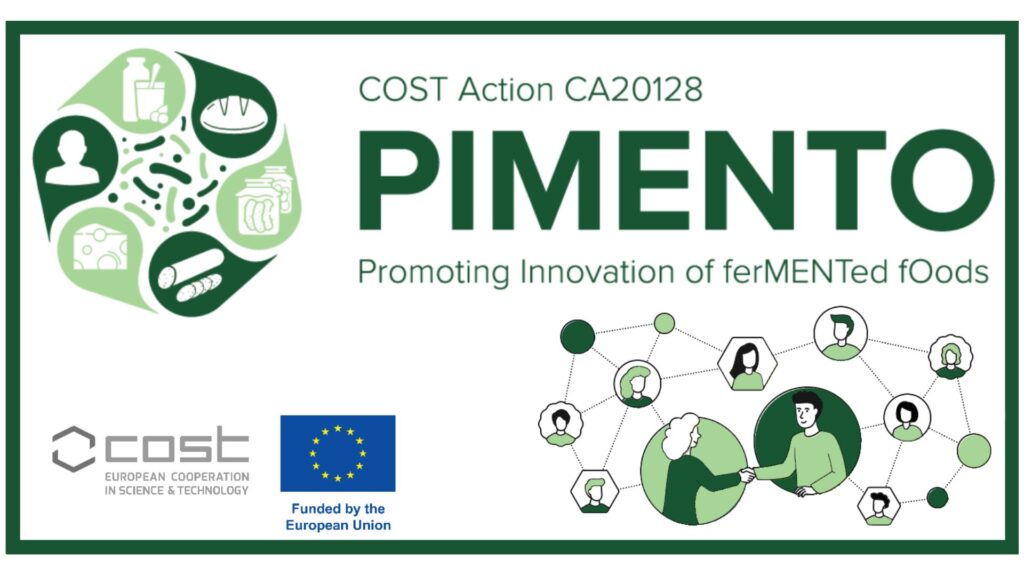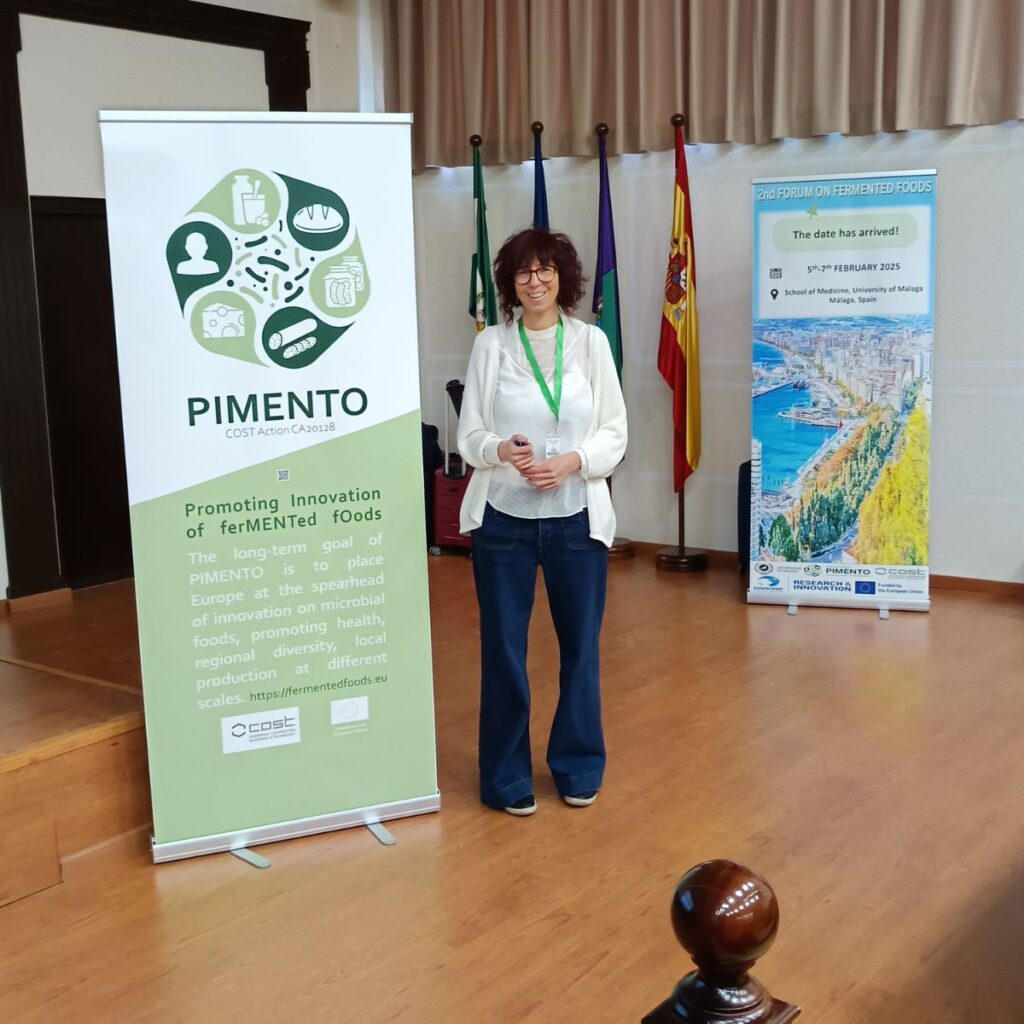
This week, our colleague Raquel Virto attended the 2nd forum on Fermented Foods in Málaga, organised within the framework of the COST action Pimento, which seeks to promote innovation in fermented foods. This event gathered over 40 participants, representing most of Europe’s research institutions working on fermented foods and gut microbiota, one of the most cutting-edge topics in food biotechnology nowadays. During this 3-day event, participants could exchange opinions and debate about several topics, such as fermented food safety, potential health benefits, and what barriers and promoters affect innovation in this field.
Among the different topics discussed during the event, one of the most relevant ones explored whether microorganisms used in biotechnology (fermentation starters, probiotics, etc.) should remain considered as food additives (Regulation (EC) No 1333/2008 on food additives) or, on the contrary, they require a specific regulation, with its own criteria and requirements. This is particularly relevant for several industry actors, especially considering how many of them are now spearheading innovation into the unknown fields of fermentation, using a variety of industry side streams and novel strains.

After three exciting (and exhausting) days, we can extract three main take-home messages for the event regarding the future of the field:
- Research efforts in fermentation are now concentrated in the valorisation of agrifood side streams, as well as the gut health and microbiota.
- Like in other fields, AI is gaining momentum, with more and better applications to the field of biotechnology and the formulation of fermented foods which have health benefits for consumers.
- Innovations players are using mixed fermentation as a means to fine-tune and enhance the sensory and functional profile of more traditional foods.
Stay tuned for future developments in the field and the contribution of Biotech4Food partners!


